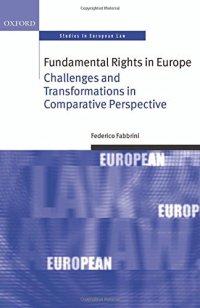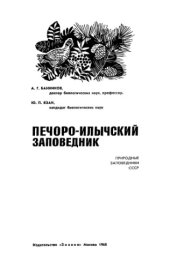
Ebook: Fundamental Rights in Europe
Author: Federico Fabbrini
- Series: Oxford Studies in European Law
- Year: 2014
- Publisher: Oxford University Press
- Edition: 1
- Language: English
- pdf
The European architecture for the protection of fundamental rights combines the legal regimes of the state, the European Union, and the European Convention on Human Rights. The purpose of this book is to analyse the implications of this multilevel architecture and to examine the dynamics that spring from the interaction between different human rights standards in Europe.
The book adopts a comparative approach by comparing the European system with the federal system of the United States. It identifies two recurrent challenges in the interplay between different state and transnational human rights standards - a challenge of ineffectiveness and a challenge of inconsistency. These challenges arise when transnational law operates either as a floor or as a ceiling of protection for a specific human right.
The comparison is explained through four in depth case studies - the right to due process for suspected terrorists, the right to vote for non-citizens, the right to strike and the right to abortion. On the basis of these case studies, the book then seeks to draw a general model for the protection of fundamental rights - so-called 'neo-federal.' This model systematically explains the constitutional dynamics at play in multilevel systems characterized by a plurality of sources and institutions for the protection of fundamental rights.
The book adopts a comparative approach by comparing the European system with the federal system of the United States. It identifies two recurrent challenges in the interplay between different state and transnational human rights standards - a challenge of ineffectiveness and a challenge of inconsistency. These challenges arise when transnational law operates either as a floor or as a ceiling of protection for a specific human right.
The comparison is explained through four in depth case studies - the right to due process for suspected terrorists, the right to vote for non-citizens, the right to strike and the right to abortion. On the basis of these case studies, the book then seeks to draw a general model for the protection of fundamental rights - so-called 'neo-federal.' This model systematically explains the constitutional dynamics at play in multilevel systems characterized by a plurality of sources and institutions for the protection of fundamental rights.
Download the book Fundamental Rights in Europe for free or read online
Continue reading on any device:

Last viewed books
Related books
{related-news}
Comments (0)


















